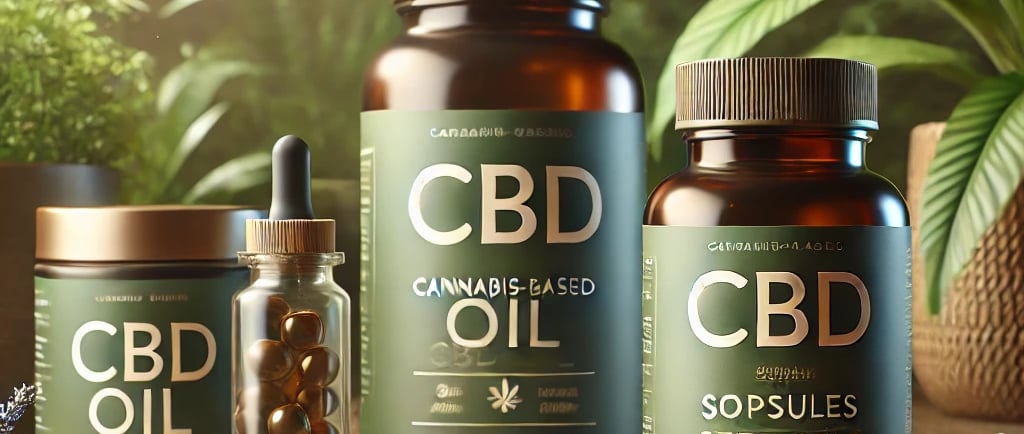Are Cannabis-Based Supplements Reliable? Understanding Their Safety and Effectiveness
Cannabis-based supplements have gained popularity worldwide due to their potential health benefits, from pain relief to anxiety reduction. However, questions about their reliability, safety, and effectiveness remain, leaving many consumers uncertain about whether to trust these products.
CANNABIS GUIDE
11/9/20242 min read


1. What Are Cannabis-Based Supplements?
Cannabis-based supplements generally contain extracts from cannabis plants, specifically cannabinoids like CBD (cannabidiol) and, less commonly, THC (tetrahydrocannabinol). These supplements come in various forms, such as oils, capsules, and gummies, each claiming unique health benefits. The attraction to cannabis supplements is often due to their natural origins and the rising interest in alternative treatments.
2. The Safety of Cannabis-Based Supplements
Safety is a major consideration. Cannabis-based supplements are often marketed as safe and natural, but the industry lacks consistent regulation. Unlike prescription medications, many cannabis supplements do not undergo rigorous testing to validate their contents, purity, or efficacy. As a result, they can vary significantly in quality, and some may even contain contaminants like pesticides, heavy metals, or synthetic cannabinoids that pose health risks.
Key Considerations:
Purity: Reputable brands typically test for contaminants, but not all manufacturers follow these standards.
Dosage: With inconsistent labeling, consumers might unknowingly take incorrect doses, leading to either ineffective results or adverse reactions.
Drug Interactions: Cannabinoids can interact with medications, particularly those processed by the liver, potentially altering the drug's effects.
3. Effectiveness and Potential Benefits
Studies suggest cannabinoids can have therapeutic effects, such as reducing chronic pain, anxiety, inflammation, and sleep disorders. CBD, for instance, has shown promise in clinical trials for treating certain types of epilepsy and is now approved as a treatment in some countries. However, not all supplements have proven efficacy; some lack sufficient levels of active cannabinoids to produce the desired effects.
4. What to Look for When Choosing a Supplement
To increase the likelihood of finding a trustworthy cannabis-based supplement, consider the following:
Third-Party Testing: Look for products with certificates of analysis (COA) from independent laboratories that verify the product’s potency and purity.
Clear Labeling: Ensure the product lists the exact amount of active cannabinoids, such as CBD or THC, and is transparent about additional ingredients.
Manufacturer Reputation: Research the brand, customer reviews, and any public safety warnings issued by regulatory bodies.
5. Current Regulations and the Need for Consumer Caution
The legal framework for cannabis supplements varies significantly by country. In some places, cannabis supplements fall under dietary supplement regulations, while in others, they are strictly controlled or outright banned. This inconsistency can make it challenging for consumers to verify the product’s reliability.
Conclusion: Should You Trust Cannabis-Based Supplements?
While cannabis-based supplements have potential health benefits, consumers should exercise caution and research each product carefully. The lack of standard regulation means that not all cannabis supplements are safe or effective. By choosing products from reputable brands with transparent practices and quality assurance, users can better ensure they’re receiving the benefits of cannabis in a safe and controlled manner.
